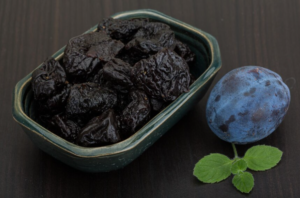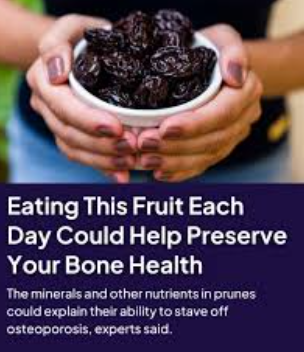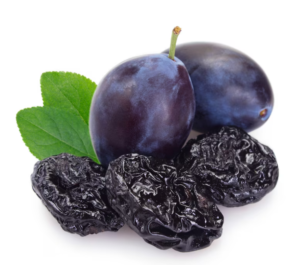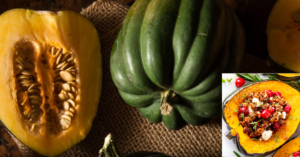Introduction: The Connection Between Dried Prunes and Bone Health
In older women, bone health becomes increasingly important.. Osteoporosis and decreased bone density can lead to fractures and mobility challenges, making proactive care essential. Among the many foods lauded for their health benefits, dried prunes stand out as a simple, nutrient-packed option to support bone health. But how do these chewy, sweet treats help your bones? Let’s dive deep into the science and benefits of dried prunes and why they should be a staple in your diet.
Table of Contents
Problem: Why Women Are More Prone to Bone Health Issues
Bone health issues disproportionately affect women. Postmenopausal women face a decline in estrogen levels, a hormone crucial for maintaining bone density. According to studies, nearly 1 in 2 women over the age of 50 will experience an osteoporosis-related fracture in their lifetime. Poor nutrition, sedentary lifestyles, and genetic factors also contribute to declining bone health.
Many women search for ways to combat these issues, but supplements and medications may not be the ideal solution for everyone. This is where dietary interventions, like incorporating nutrient-rich foods such as dried prunes, can make a significant difference.
Solution: How Dried Prunes Support Bone Health
What Makes Dried Prunes Special?
Dried prunes, also known as dried plums, are more than just a convenient snack. They are rich in essential nutrients that play a direct role in maintaining strong and healthy bones. Their unique combination of vitamins, minerals, and antioxidants positions them as a powerful natural ally in preventing bone-related issues.
Key Nutrients in Dried Prunes
1. Vitamin K
Dried prunes are packed with vitamin K, which helps improve bone density by supporting calcium binding in bones. Adequate levels of vitamin K are linked to a reduced risk of fractures.
2. Boron
A trace mineral found in dried prunes, boron enhances the body’s ability to absorb calcium and magnesium, two critical elements for bone formation.
3. Potassium
Potassium neutralizes acids in the body that can lead to calcium loss. By consuming potassium-rich foods like dried prunes, you help preserve calcium stores in your bones.
4. Magnesium
Magnesium plays a key role in activating vitamin D, which is necessary for calcium absorption. Dried prunes provide a significant amount of this mineral.
5. Fiber
While commonly associated with digestive health, fiber in dried prunes indirectly supports bone health by promoting nutrient absorption and reducing inflammation in the body.
The Science Behind Dried Prunes and Bone Health
Multiple studies have highlighted the benefits of dried prunes for bone health:
- Clinical Studies: Research published in the British Journal of Nutrition found that women who consumed 5–10 prunes daily experienced improved bone mineral density compared to those who did not.
- Antioxidant Properties: The polyphenols in dried prunes combat oxidative stress, a major contributor to bone loss as women age.
- Preventing Bone Resorption: Prunes are shown to slow the process of bone resorption, where old bone is broken down faster than it can be replaced.

Benefits of Dried Prunes beyond Bone Health
While their bone-strengthening abilities are impressive, dried prunes offer additional benefits for overall health:
1. Improved Digestive Health
High in soluble and insoluble fiber, dried prunes are well-known for their ability to ease constipation and support gut health.
2. Blood Sugar Regulation
Despite their natural sweetness, dried prunes have a low glycemic index, helping maintain stable blood sugar levels.
3. Heart Health
Prunes are a good source of potassium, which helps lower blood pressure and supports cardiovascular health.
4. Rich in Antioxidants
Polyphenols in dried prunes help fight free radicals, reducing the risk of chronic diseases and inflammation.
Practical Tips to Incorporate Dried Prunes into Your Diet
Adding dried prunes to your diet is easy and delicious:
- Snacks: Enjoy them as a standalone snack between meals.
- Smoothies: Blend prunes with almond milk, spinach, and a banana for a nutrient-packed smoothie.
- Baking: Use chopped dried prunes in muffins or energy bars.
- Salads: Add sliced prunes to your salads for a touch of natural sweetness.
- Trail Mix: Combine prunes with nuts and seeds for a balanced snack.

Are There Any Side Effects?
Moderation is key when consuming dried prunes. Overeating them can lead to digestive issues such as bloating or gas due to their high fiber content. Start with 4–5 prunes a day and gradually increase as your body adapts.

Conclusion: A Sweet Solution for Strong Bones
Incorporating dried prunes into your daily diet is a simple, natural way to support bone health, especially for women. Packed with essential nutrients like vitamin K, boron, and potassium, these delicious treats offer more than just a sweet flavor—they’re a powerhouse for overall well-being. Whether you snack on them, blend them into smoothies, or add them to your favorite recipes, dried prunes are a step toward healthier, stronger bones. Start small, stay consistent, and let the power of dried prunes work for you.
Frequently Asked Questions (FAQs)
Yes, dried prunes are normal plums that have been dried to preserve their nutrition and taste.
Studies suggest consuming 5–10 prunes daily to improve bone density.
Absolutely! While women are more prone to osteoporosis, men can also benefit from the nutrients in dried prunes.
Dried prunes contain natural sugars, but they have a low glycemic index, making them a healthy choice.
Other foods rich in calcium, vitamin D, and magnesium, like dairy, leafy greens, and nuts, also support bone health.
They are wealthy in fiber, which helps to control appetite due to their high satiety levels.
Yes, they are a great source of fiber and nutrients beneficial during pregnancy, but consult your doctor for personalized advice.
High vitamin K levels in prunes may interfere with blood-thinning medications. If you have questions about this, please contact your healthcare provider.
Store them in an airtight container in a cool, dry place to retain freshness.
Yes, they are a nutritious snack for children, promoting growth and development.

10 Proven Benefits of Bananas for Health and Well-being
Bananas are known for their natural sweetness, ease of peeling and rich nutrition. This makes them one of the most

Disease X: The Next Pandemic?
Emerging infectious diseases pose one of the greatest threats to human health and global stability. One of them, “Disease X”

The Remarkable Benefits of Eating Acorn Squash in Winter
Acorn squash has all the qualities that make it special. Winter calls for warmth, comfort, and nutrition, and acorn squash

Omega-3 Fatty Acids
Omega-3 fatty acids play a very important role in the nutrients needed to maintain overall health. As people are getting
